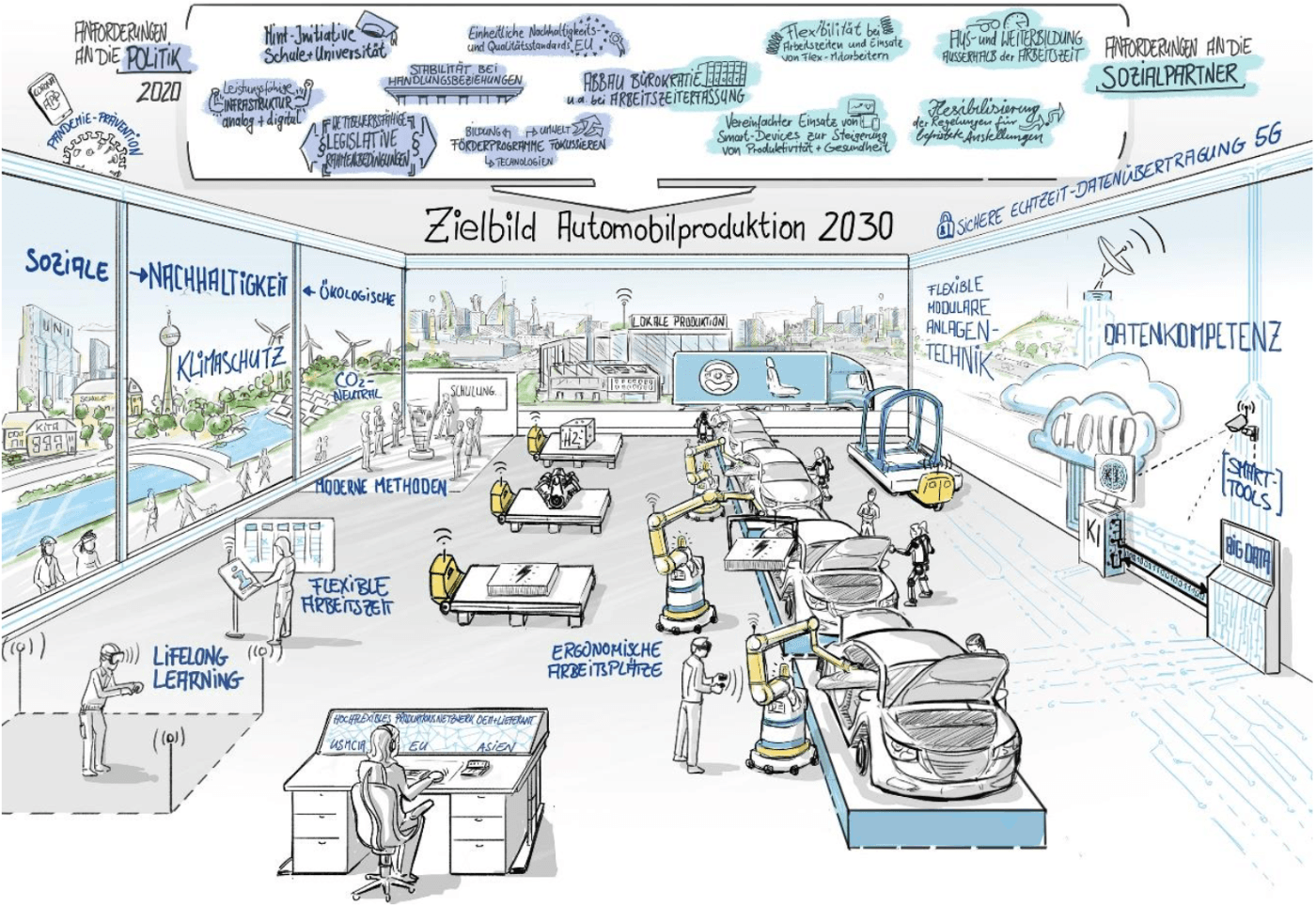
Production, logistics, aftermarket
The future of automotive production: a target picture for 2030
From digitalization to electrification to pandemics: What the big trends mean for the automotive industry.
From digitalization to electrification to pandemics: What the big trends mean for the automotive industry.
- Topics
- Automotive industry
- Production, logistics, aftermarket
- Future of production
Value creation process and networks
With 800,000 employees, the automotive industry has been a core sector in Germany for decades, makes a significant contribution to GDP, and is a main reason why "Made in Germany" stands for perfection and quality around the world. However, the transition to alternative power trains and to connectivity is currently leading to radical changes within the sector. New players are emerging in the global automotive industry, attracting important sections of the value creation chain – often in other countries and industrial locations. In addition, the volatility in trading policies worldwide plus the economic recession as a result of the corona pandemic pose far-reaching challenges.
To remain competitive on a global scale and to secure the long-term levels of employment in Germany, it is necessary for all those concerned to act: Companies, employees, labor representatives, and politicians. This is why the VDA is developing its "Vision for Automotive Manufacturing" for 2030. The vision is defined in terms of five dimensions with the corresponding requirements for Germany as an economic location. These are necessary for its success – so that we remain the world's leading automotive industry and continue to represent perfection on four wheels:

Due to the volatile trade policy, manufacturing in the three core markets will be independent in the future, while in many of the plants it will be possible to manufacture different power trains and the diversified product mix. This will lead to greater complexity in the plants, to which the industry is responding with a flexible network, made possible by modularization, standardization, and a shared operations network with suppliers. Legislators are to encourage this with liberal industrial policies.
With the new players in the industry, there is a global "war for talent," i.e., German companies will only remain attractive employers by way of appropriate measures. This includes the two-stage qualification of employees: Policies will create the framework for the education sector to convey an affinity for and knowledge of the STEM and digital subjects, while the industry provides training and further education for the workforce.
The management of companies and their global supply chains will be efficiently data-driven. Our industry is establishing the necessary standards, facilitated by corresponding laws and guidelines.
The German automotive industry will manufacture cars that are socially and ecologically sustainable in both their use and production. The industry is working on initiatives concerning raw materials and human rights, while policymakers are supporting existing programs and initiating new ones.
With an overarching prevention concept, our industry will respond to pandemics at an early stage, contain the spread, and minimize the impact on operations and on the global supply chain. Social partners will enable the necessary flexibility, while policymakers are to develop uniform (transnational) regulations on hygiene measures, travel restrictions, movement of goods, etc.